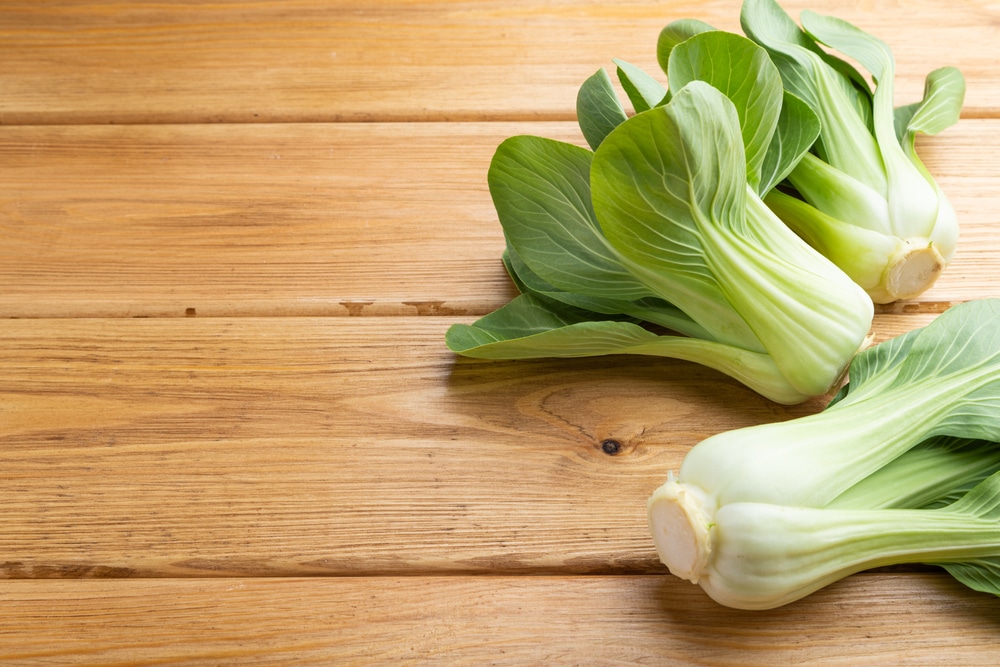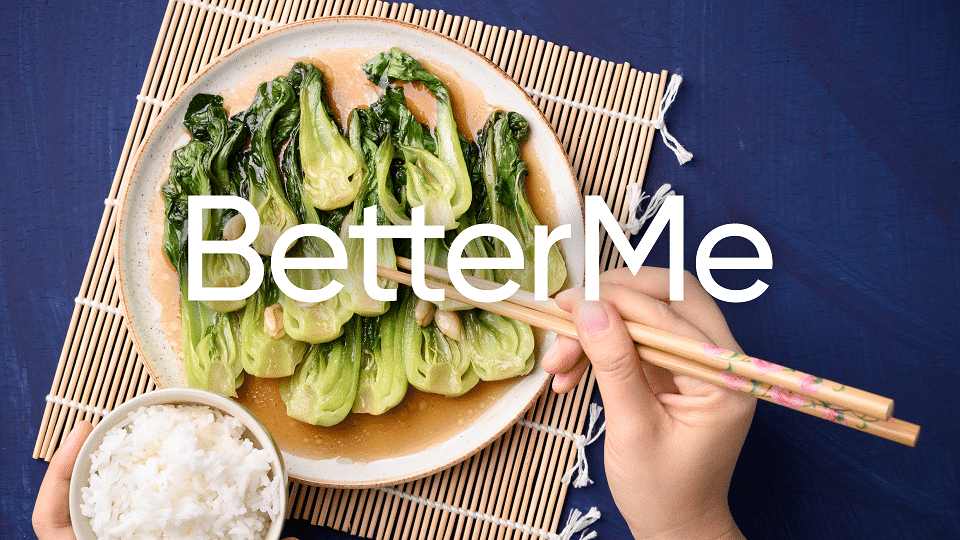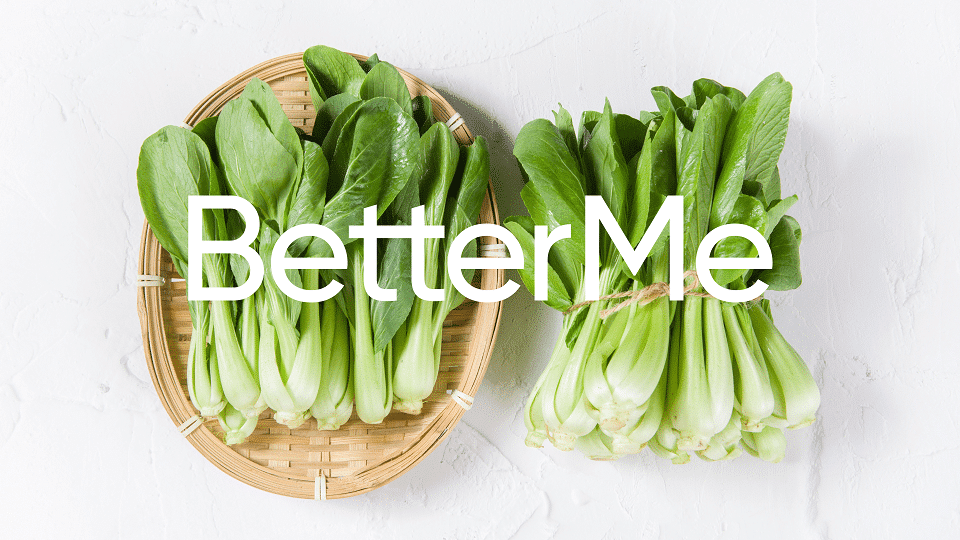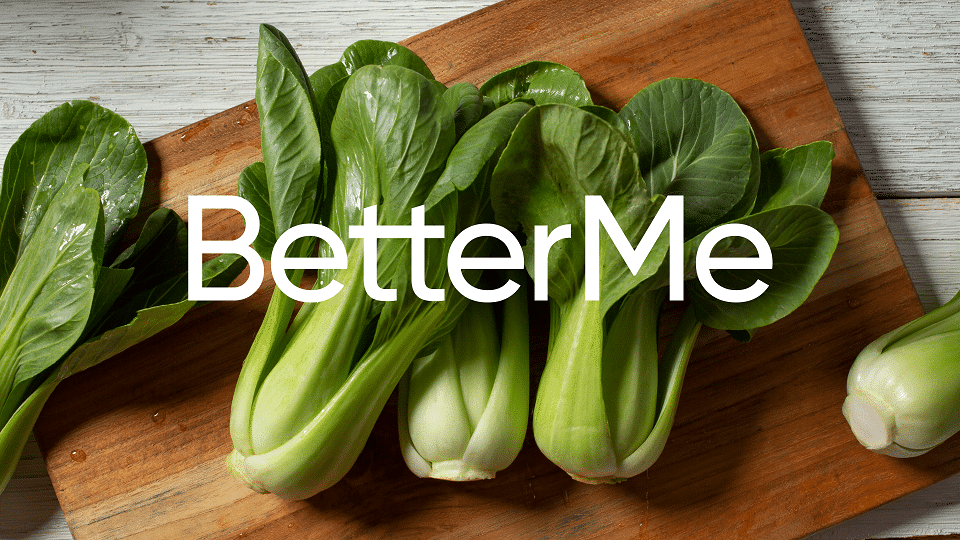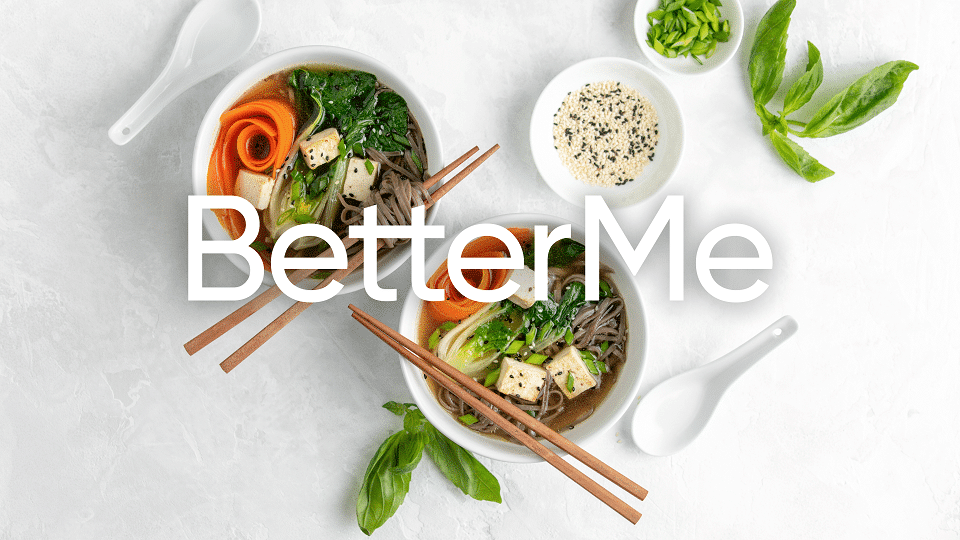The mark of any good diet plan is not in how many carbs, protein, or fat it has. Instead, a good diet plan is known by its emphasis – or lack thereof – on vegetables and fruits. Leafy greens and cruciferous vegetables are part of the backbone that make up any great weight loss diet. Bok Choy is one such vegetable that while it may not be as widely known as spinach, kale, lettuce or cabbage, has a myriad of health benefits that not only help with weight loss, but also with improved general health and immunity. In today’s article we shall be taking a deeper look into this vegetable and discussing side effects, health benefits, nutrition facts and more on bok choy.
What Is Bok Choy?
Before delving into bok choy health benefits, side effects, uses and more, we must first understand what bok choy is and what it’s good for.
Also known as pok choi or pak choi, it is a type of Chinese white cabbage native to China. In Cantonese bok choy literally translates to “white vegetable”. It is part of the Brassica genus of plants alongside other popular vegetables such as broccoli, Brussels sprouts, cabbage, cauliflower, collard greens, kale, turnips and much more (19). These Brassica vegetables are also known as cruciferous vegetables.
In short bok choy is a cruciferous leafy green vegetable native to China and often used in East Asian cooking.
What Is The Nutrition In Bok Choy?
According to the US Department of Agriculture (USDA), one cup of raw shredded bok choy has the following nutrients (2)
- Calories bok choy – 9.1 kcal
- Protein – 1.05 g
- Fats – 0.14 g
- Carbs – 1.53 g
- Fiber – 0.7 g
- Calcium – 73.5 mg
- Iron – 0.56 mg
- Magnesium – 13.3 mg
- Phosphorus – 25.9 mg
- Potassium – 176 mg
- Sodium – 45.5 mg
- Zinc – 0.133 mg
- Manganese – 0.111 mg
- Choline – 4.48 mg
- Vitamin C – 31.5 mg
- Folate – 46.2 µg
- Vitamin A – 156 µg RAE (as beta carotene)
- Vitamin K – 31.8 µg
- Cholesterol – 0 mg
- Lutein + zeaxanthin – 28 µg
This leafy green cruciferous vegetable also has trace amounts of other nutrients such as copper, selenium, thiamin, riboflavin, niacin. vitamin B-6, betaine, and vitamin E.
Read More: Bok Choy Facts, Calories, Health Benefits And Side Effects
What Are The Health Benefits Of Bok Choy?
Before looking at the bok choy side effects, let’s first learn about the benefits of eating bok choy.
Like all other vegetables in the Brassica genus of plants this Chinese cabbage has some incredible advantages that we could all be gaining by consuming more of it. Here are some possible nutritional benefits of bok choy:
Improved Heart Health
Cardiovascular diseases are the leading cause of death globally with over 17 million deaths a year. Keeping your blood pressure in control, eating a healthy diet and keeping your cholesterol levels down are among the things that you can do to prevent heart disease. The benefits of eating bok choy to help with the above mentioned points are all covered.
- The fact that the Chinese cabbage is a leafy green cruciferous vegetable makes it a heart friendly meal or snack.
- In terms of blood pressure regulation, sodium, magnesium, potassium, and calcium are key minerals known to play a central role in the regulation of blood pressure as well as the prevention and treatment of hypertension (aka high blood pressure). These four minerals are all found in bok choy (23, 20).
- This vegetable also has no cholesterol and very little fat, thus consuming it will not increase your cholesterol levels or risk clogging your arteries.
Bok choy also has minerals and vitamins such as vitamin C, folate, and vitamin b-6 which are know to help keep your heart in tip top shape
- Folate – Helps the blood vessels relax which improves blood flow. It also reduces levels of homocysteine, a protein in the blood that has been linked to heart disease.
- Vitamin C – A meta-analysis published in the The American Journal of Clinical Nutrition, found that taking about 500 mg of vitamin C a day may help reduce both systolic and diastolic blood pressure (13).
- Vitamin B6 – Studies in rats have shown positive results in relation to B6 and reducing blood pressure in obese hypertensive animals (28).
Weight Loss
In 1948, the World Health Organization recognized obesity as a disease but its findings and calls to action were ignored by governments and people in the medical profession all over the world. Years later in the 1980s, WHO put out more data insisting that obesity was a matter that needed more attention but again, its findings were ignored (33).
It was not until 1997 when the organization finally declared this matter as a global epidemic did government leaders sit up, notice, and start taking the matter seriously (29). In the year 2000 the number of obese adults had increased to over 300 million. In 2016 over 650 million people were obese while another over 1.9 billion adults were considered overweight (7, 22).
With so many overweight and obese people needing to achieve a healthy weight, the question of which foods are best for weight loss is never far behind. Bok choy is one such food, a fact backed by scientific research.
In 2015, a study published by PLOS Medicine revealed that people who often consume vegetables with higher fiber and lower glycemic load (aka non-starchy vegetables) lost more weight than those who ate lower-fiber, higher-glycemic-load (starchy) vegetables. This study was done for about 24 years (from 1986 to 2010) and had over 133,450 participants (5).
This vegetable is also very low in calories and carbohydrates which makes it perfect for any low carb weight loss diet.
Whether you’re looking to simply pep up your fitness routine, jazz up your diet with mouth-watering low-calorie recipes or want to get your act together and significantly drop that number on your scale – BetterMe app has got you covered! Improve your body and revamp your life with us!
May Lower The Risk Of Cancer
According to the National Cancer Institute, cancer is among the leading causes of death worldwide with numbers in the millions (4). In the United States alone, cancer stands second in leading causes of death (right after heart disease) with over 500,000 succumbing to it every year (18). What’s worse is that the current numbers are expected to rise and by 2040 estimates say that the number of new cancer cases per year may be 29.5 million with the number of cancer-related deaths at 16.4 million (4).
Because the exact causes of cancer remains largely unknown, prevention is better than cure. Scientific research has shown that cruciferous vegetables such bok choy play a large role in the prevention of this illness
- A review over 10,000 studies on cancer published by the Annals of Oncology journal in 2012 revealed that the consumption of vegetables from the Brassica genus of plants significantly reduces the risk of oral, esophageal, colorectal, breast, and kidney cancers (8).
The cancer fighting properties found in pak choi are thanks to the myriad of antioxidants found in the vegetable. For example
- Selenium – The amount of selenium in bok choy might not be as high as in Brazil nuts, but these trace amounts still go a long way in cancer prevention. Research shows that people who have lower levels of this antioxidant in their bodies are at a higher risk of developing breast prostate, lung, esophagus, and stomach cancer (26, 25).
- Glucosinolates – According to a review published by the Asian Pacific Journal of Cancer Prevention, pok choi and other cruciferous veggies have the highest amounts of glucosinolates as compared to other vegetables. These glucosinolates and their breakdown products isothiocyanates are believed to be the root of cancer prevention properties in bok choy (9).
- Vitamin C – While the jury is still out on the role of Vitamin C in cancer prevention, research shows that in cancer patients, this Vitamin might help improve their quality of life (30). Please note that vitamin C (from foods) is not all useless in cancer prevention in healthy patients. Ascorbic acid is known to help fight against free radicals which can damage cells, especially DNA which plays a role in the development of cancer and other health conditions (15).
- Folate – This antioxidant is mostly known for its uses in pregnant and breastfeeding women as well as babies, it plays a role in cancer prevention too. It has a major role in the production and repair of DNA, which prevents DNA mutations that form cancer cells (14)
- Vitamin E and Beta-carotene – While more research is still needed, studies so far have shown that these two nutrients have powerful compounds that have potential anti-cancer properties (31, 12).
May Improve Bone Health
According to the National Institute of Arthritis and Musculoskeletal and Skin Diseases, bone health is important as strong bones allow us to move around, protect our brains, heart, and other organs from injury, store minerals such as calcium and phosphorous not only for their use but for other bodily functions too, and support us as we go about our daily activities (1).
Bok Choy is fantastic in supporting bone health as it has several vitamins and minerals that ensure our bones remain healthy and strong. They include
- Calcium – In children the mineral is used to help build strong bones while in adults it helps them maintain strong bones. It also plays a great role in preventing bone loss and osteoporotic fractures in later life (3).
- Zinc – It is known to help with normal skeletal growth, bone homeostasis and for promoting bone regeneration. A 2010 review in the Molecular and Cellular Biochemistry journal revealed that this mineral’s restorative effect on bones helps with conditions such as aging, skeletal unloading, aluminum bone toxicity, calcium- and vitamin D-deficiency, adjuvant arthritis, estrogen deficiency, diabetes, fracture healing as well as the prevention and therapy of osteoporosis (34, 24).
- Iron – Iron deficiency is often associated with anemia. However, more and more studies are finding a link between this minerals deficiency and deteriorating bone health
- A study published in 2003 by the Journal of Nutrition showed that increased iron intake increased bone mineral density in post menopausal women (10).
- In 2015, the Nutrients journal published an article explaining the possible link between iron deficiency and osteoporosis. The review hypothesized that lack of enough iron in the body leaves you at a higher risk of bone loss, osteoporosis, and risk of fracture (6).
- A recent review in the Pharmaceuticals journal also explained that having the right balance of this mineral in your body helps keep bone homeostasis (bone destruction and production) running smoothly (16).
Iron also helps with collagen synthesis which also helps to improve bone density and keeps your bones strong. While bok choy only seems to have trace amounts of iron consuming it still helps increase your daily intake of this very important mineral.
Read More: Cabbage Juice Benefits: Are There Any Reasons To Start Drinking This Juice?
Bok Choy Side Effects
Despite the many health benefits of eating bok choy, the consumption of this vegetable comes with some undesirable side effects. They include
-
Nutrient Deficiency
As previously stated, bok choy can be consumed raw which makes it a great addition to salads. That said, eating it raw can inhibit your body’s ability to absorb iodine.
One case study published by The New England Journal of Medicine showed a woman hospitalized in the intensive care unit after being lethargic and unable to walk or swallow for 3 days. Doctors were finally able to link her condition to her daily consumption of 1.0 to 1.5 kg of raw bok choy for several months.
Raw bok choy contains the enzyme myrosinase which breaks down the glucosinolates. Once broken down glucosinolates release some compounds which inhibit iodine absorption which messes up with thyroid function (21).
To be on the safe side, you are advised to limit your consumption of raw pak choi , or better yet, cook the vegetable (as well as other brassica vegetables), a process that deactivates this enzyme (11).
-
Medical Contradictions
One cup of bok choy has 31.8 µg of Vitamin K.
According to Harvard School of Public Health, Vitamin K helps to make four of the 13 proteins needed for blood clotting, which stops wounds from continuously bleeding so they can heal. Other than blood clotting, this vitamin also helps with bone metabolism and the regulation of blood calcium levels.
However, for people taking blood thinning medication, they need to keep their intake of vitamin K roughly the same from day to day. Too much or variable amounts of vitamin K with blood thinning meds will interfere with how your medication works (32). Talk to your doctor and dietitian about vitamin K in your diet if you are on blood thinning medication.
If you struggle to even flirt with the idea of giving up your favorite foods or working out till your legs give way – BetterMe app is here to breathe a fresh perspective into the way you view the weight loss process! Check out the app and experience the fun side of fitness and dieting with BetterMe!
FAQs
What Is Bok Choy Good In?
As seen above, this delicious vegetable is rich in antioxidants as well as vitamins and minerals. Bok Choy nutrition facts aside, in cooking, this simple vegetable is often stir-fried making a crunchy and delicious snack or side dish. It also makes a great addition to salads, soups as well as filling for dumplings, steamed buns, or even spring rolls.
How Many Calories In Bok Choy?
Like many other leafy greens and cruciferous vegetables, this Chinese cabbage has very little calories per serving which makes it among the best weight loss foods. 100 grams of raw pak choi has only 13 calories (2), a number much lower than the same amount of raw spinach or kale – 23 kcal and 35 kcal, respectively (27, 17).
The Bottom Line
Bok choy side effects cannot compare to the health benefits that come from consuming this simple vegetable. If you have been looking for more leafy greens to add to your diet then by all means, add some pak choi to your basket the next time you go grocery shopping – just make sure that you limit how often you eat it raw. As for people on blood thinner medication, be sure to talk to your doctor and dietitian.
DISCLAIMER:
This article is intended for general informational purposes only and does not serve to address individual circumstances. It is not a substitute for professional advice or help and should not be relied on for making any kind of decision-making. Any action taken as a direct or indirect result of the information in this article is entirely at your own risk and is your sole responsibility.
BetterMe, its content staff, and its medical advisors accept no responsibility for inaccuracies, errors, misstatements, inconsistencies, or omissions and specifically disclaim any liability, loss or risk, personal, professional or otherwise, which may be incurred as a consequence, directly or indirectly, of the use and/or application of any content.
You should always seek the advice of your physician or other qualified health provider with any questions you may have regarding a medical condition or your specific situation. Never disregard professional medical advice or delay seeking it because of BetterMe content. If you suspect or think you may have a medical emergency, call your doctor.
SOURCES:
- Bone Health for Life: Health Information Basics for You and Your Family (2018, bones.nih.gov)
- Cabbage, chinese (pak-choi), raw (2019, fdc.nal.usda.gov)
- Calcium intake and bone mineral density: systematic review and meta-analysis (2015, bmj.com)
- Cancer Statistics (2020, cancer.gov)
- Changes in Intake of Fruits and Vegetables and Weight Change in United States Men and Women Followed for Up to 24 Years: Analysis from Three Prospective Cohort Studies (2015, journals.plos.org)
- Chronic Iron Deficiency as an Emerging Risk Factor for Osteoporosis: A Hypothesis (2015, ncbi.nlm.nih.gov)
- Controlling the global obesity epidemic (n.d., who.int)
- Cruciferous vegetables and cancer risk in a network of case-control studies (2012, pubmed.ncbi.nlm.nih.gov)
- Cruciferous vegetables: dietary phytochemicals for cancer prevention (2013, pubmed.ncbi.nlm.nih.gov)
- Dietary Iron Is Associated with Bone Mineral Density in Healthy Postmenopausal Women (2003, academic.oup.com)
- Effect of cooking brassica vegetables on the subsequent hydrolysis and metabolic fate of glucosinolates (2007, pubmed.ncbi.nlm.nih.gov)
- Effectiveness of beta-carotene in cancer chemoprevention (1995, pubmed.ncbi.nlm.nih.gov)
- Effects of vitamin C supplementation on blood pressure: a meta-analysis of randomized controlled trials (2012, ncbi.nlm.nih.gov)
- Folate (2021, ods.od.nih.gov)
- Free radicals, antioxidants and functional foods: Impact on human health (2010, ncbi.nlm.nih.gov)
- Influence of Iron on Bone Homeostasis (2018, ncbi.nlm.nih.gov)
- Kale, raw (2019, fdc.nal.usda.gov)
- Leading Causes of Death (2021, cdc.gov)
- list of plants in the family Brassicaceae (n.d., britannica.com)
- Minerals and blood pressure (1991, pubmed.ncbi.nlm.nih.gov)
- Myxedema Coma Induced by Ingestion of Raw Bok Choy (2010, nejm.org)
- Obesity and overweight (2021, who.int)
- Potassium, magnesium, and calcium: their role in both the cause and treatment of hypertension (2008, pubmed.ncbi.nlm.nih.gov)
- Role of nutritional zinc in the prevention of osteoporosis (2010, pubmed.ncbi.nlm.nih.gov)
- Selenium (2021, ods.od.nih.gov)
- Selenium Exposure and Cancer Risk: an Updated Meta-analysis and Meta-regression (2016, ncbi.nlm.nih.gov)
- Spinach, raw (2019, fdc.nal.usda.gov)
- The effect of vitamin B6 on the systolic blood pressure of rats in various animal models of hypertension (1996, pubmed.ncbi.nlm.nih.gov)
- The Global Epidemic of Obesity: An Overview (2007, academic.oup.com)
- Vitamin C and Cancer: The Role of Vitamin C in Disease Progression and Quality of Life in Cancer Patients (2021, pubmed.ncbi.nlm.nih.gov)
- Vitamin E and cancer prevention (1991, pubmed.ncbi.nlm.nih.gov)
- Vitamin K (2021, ncbi.nlm.nih.gov)
- WHO recognition of the global obesity epidemic (2008, pubmed.ncbi.nlm.nih.gov)
- Zinc as a Therapeutic Agent in Bone Regeneration (2020, ncbi.nlm.nih.gov)
